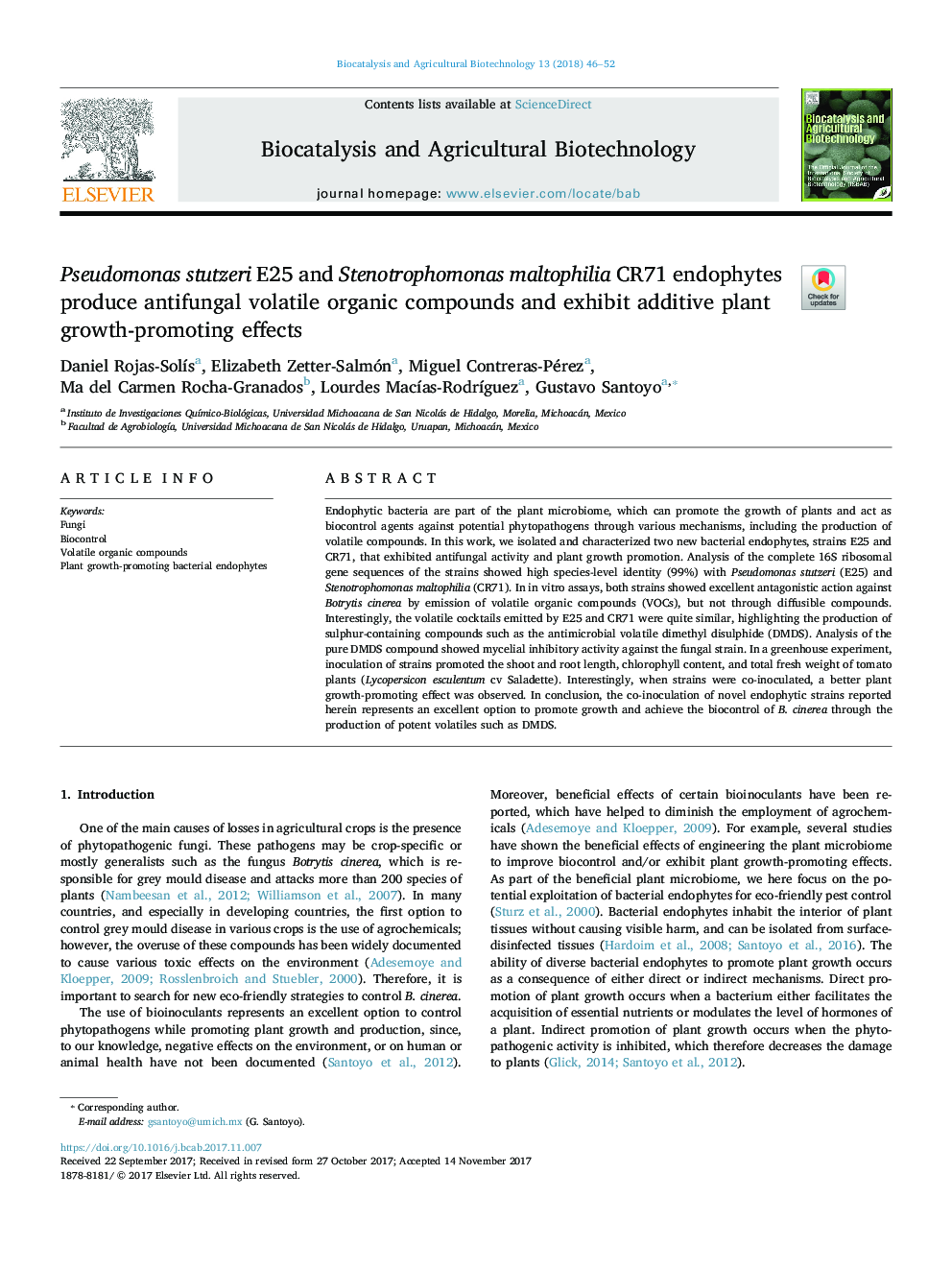| Article ID | Journal | Published Year | Pages | File Type |
|---|---|---|---|---|
| 8405926 | Biocatalysis and Agricultural Biotechnology | 2018 | 7 Pages |
Abstract
Endophytic bacteria are part of the plant microbiome, which can promote the growth of plants and act as biocontrol agents against potential phytopathogens through various mechanisms, including the production of volatile compounds. In this work, we isolated and characterized two new bacterial endophytes, strains E25 and CR71, that exhibited antifungal activity and plant growth promotion. Analysis of the complete 16S ribosomal gene sequences of the strains showed high species-level identity (99%) with Pseudomonas stutzeri (E25) and Stenotrophomonas maltophilia (CR71). In in vitro assays, both strains showed excellent antagonistic action against Botrytis cinerea by emission of volatile organic compounds (VOCs), but not through diffusible compounds. Interestingly, the volatile cocktails emitted by E25 and CR71 were quite similar, highlighting the production of sulphur-containing compounds such as the antimicrobial volatile dimethyl disulphide (DMDS). Analysis of the pure DMDS compound showed mycelial inhibitory activity against the fungal strain. In a greenhouse experiment, inoculation of strains promoted the shoot and root length, chlorophyll content, and total fresh weight of tomato plants (Lycopersicon esculentum cv Saladette). Interestingly, when strains were co-inoculated, a better plant growth-promoting effect was observed. In conclusion, the co-inoculation of novel endophytic strains reported herein represents an excellent option to promote growth and achieve the biocontrol of B. cinerea through the production of potent volatiles such as DMDS.
Related Topics
Life Sciences
Agricultural and Biological Sciences
Agricultural and Biological Sciences (General)
Authors
Daniel Rojas-SolÃs, Elizabeth Zetter-Salmón, Miguel Contreras-Pérez, Ma del Carmen Rocha-Granados, Lourdes MacÃas-RodrÃguez, Gustavo Santoyo,
